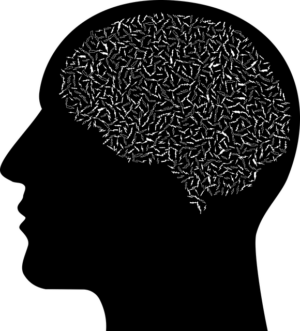Pittsburgh's mental health landscape has been significantly transformed by the prevalence of cognitive behavioral therapy (CBT), with local therapists renowned for their expertise and personalized approach to treating anxiety, depression, trauma, and other conditions. The city offers specialized CBT services tailored to individual needs, including depression CBT that helps residents challenge negative thought patterns and build resilience, and anxiety CBT that equips individuals with tools to manage symptoms effectively. Pittsburgh's proficiency in trauma-focused CBT is particularly noteworthy, providing compassionate care for those dealing with past traumas. CBT for insomnia and OCD, as well as mindfulness-based and couples CBT, are also available, enriching the therapeutic process through various practices that enhance awareness and communication. For younger demographics, Pittsburgh offers age-appropriate CBT therapy to encourage the development of healthy coping mechanisms. Group CBT sessions offer a supportive community environment for individuals to share experiences and learn from each other. Cognitive Behavioral Therapy in Pittsburgh stands as a key treatment modality, offering hope and recovery through evidence-based practices and a comprehensive approach to mental health wellness.
Pittsburgh emerges as a beacon of mental health wellness, offering a suite of evidence-based cognitive behavioral therapy (CBT) techniques tailored to the diverse needs of its residents. This comprehensive guide delves into the transformative power of CBT across various aspects of psychological health in the Steel City. From addressing depression and anxiety to managing trauma, insomnia, OCD, and relationship issues, Pittsburgh’s CBT therapists are at the forefront of mental health innovation. Discover how CBT not only alleviates symptoms but also fosters resilience and empowers individuals, families, and communities with effective coping strategies. Join us on this journey to explore the multifaceted applications of CBT in Pittsburgh, where wellness is within reach for all.
- Mastering Anxiety and Depression: The Role of Cognitive Behavioral Therapy in Pittsburgh's Wellness Journey
- – Subheadings:
- – Understanding Cognitive Behavioral Therapy (CBT) Pittsburgh Style
Mastering Anxiety and Depression: The Role of Cognitive Behavioral Therapy in Pittsburgh's Wellness Journey

In Pittsburgh, cognitive behavioral therapy (CBT) has emerged as a cornerstone in the wellness journey for those grappling with anxiety and depression. CBT therapists in Pittsburgh are adept at guiding individuals through the intricacies of their thoughts and behaviors, offering tailored strategies to master these mental health challenges. The city’s specialized CBT practitioners provide a sanctuary for those seeking relief from the heavy burden of depression. By addressing maladaptive patterns of thinking and behavior, depression CBT Pittsburgh sessions empower residents with tools to reframe negative thought processes and foster resilience. Similarly, anxiety CBT Pittsburgh services are renowned for their effectiveness in helping individuals confront and manage their anxious thoughts and feelings. This form of therapy is particularly potent when it comes to trauma-focused CBT in Pittsburgh, where trained therapists navigate the complex emotional landscape of trauma with empathy and expertise. The city’s commitment to mental health is further underscored by specialized treatments for conditions like OCD and insomnia, with CBT for OCD providing structured support to break obsessive-compulsive cycles, and CBT for insomnia offering Pittsburgh sleep solutions that promote restful nights and rejuvenated days. Additionally, mindfulness-based CBT in Pittsburgh enriches the practice by integrating mindfulness techniques, allowing individuals to cultivate a present-centered awareness that can diminish the hold of anxiety and depression. Couples CBT in Pittsburgh offers a unique approach to relationship issues, helping dyads to navigate conflicts and enhance their connection through improved communication and mutual understanding. Furthermore, the city’s CBT approach for teens and children is designed to be age-appropriate, fostering healthy coping mechanisms and emotional regulation from an early age. Group CBT sessions in Pittsburgh provide a supportive environment where individuals can share experiences, learn from peers, and find solidarity with those on similar paths to wellness. This multifaceted approach to cognitive behavioral therapy underscores Pittsburgh’s dedication to mental health, offering a wealth of resources for residents to overcome the challenges of anxiety and depression.
– Subheadings:

In Pittsburgh, cognitive behavioral therapy, or CBT, has become a beacon of hope for individuals grappling with various mental health challenges. The city’s cadre of skilled CBT therapists is well-equipped to address issues ranging from depression to anxiety, and even trauma. These professionals are adept at tailoring their approach to suit the unique needs of each client, ensuring that therapy is not just a series of sessions but a personalized journey towards healing and growth. For those suffering from depression in Pittsburgh, CBT offers practical strategies to challenge and change negative thought patterns, fostering a more positive outlook and improved emotional regulation. Similarly, for residents grappling with anxiety, CBT techniques provide tools to manage symptoms effectively, helping them to navigate daily life with greater confidence and resilience.
Trauma-focused CBT in Pittsburgh is particularly noteworthy, as it addresses the complex needs of individuals who have experienced traumatic events. This specialized form of therapy allows survivors to process their experiences, develop coping mechanisms, and work through their trauma in a supportive and understanding environment. Additionally, for those struggling with sleep issues such as insomnia, CBT for Insomnia: Pittsburgh Sleep Solutions offers evidence-based interventions that target the underlying cognitive processes contributing to sleep disturbances. Mindfulness-Based CBT (MBCBT) practitioners in Pittsburgh also play a crucial role, guiding clients through mindfulness exercises that enhance their awareness and ability to manage stress and emotions effectively. Whether through individual therapy or group sessions like Group CBT Sessions: Pittsburgh Support Network, the city’s approach to CBT is comprehensive, accessible, and rooted in empirical evidence, offering residents a range of options to suit their specific mental health needs.
– Understanding Cognitive Behavioral Therapy (CBT) Pittsburgh Style

In Pittsburgh, cognitive behavioral therapy (CBT) has become a cornerstone in addressing a variety of mental health issues, with local CBT therapists leading the charge in providing effective treatment for depression and anxiety. Unlike a one-size-fits-all approach, CBT therapists in Pittsburgh tailor their strategies to meet individual needs, ensuring that each person receives care that resonates with their unique experiences. The evidence-based practice of CBT, as applied by these experts, involves identifying negative thought patterns and behaviors associated with depression and anxiety in Pittsburgh residents, and gradually replacing them with healthier, more adaptive ways of thinking and acting. This process often includes collaboration with other healthcare providers to create a comprehensive treatment plan that addresses the full spectrum of each individual’s needs.
Moreover, trauma-focused CBT in Pittsburgh is particularly noteworthy for its effectiveness in treating clients who have experienced traumatic events. This specialized form of therapy helps individuals process their experiences and develop coping skills to manage the lingering effects of trauma. For those struggling with sleep disorders like insomnia, CBT for Insomnia: Pittsburgh Sleep Solutions offers a non-pharmacological intervention that targets the cognitive and behavioral aspects of sleep disturbance. Similarly, mindfulness-based CBT harnesses the principles of mindfulness to help Pittsburgh residents manage conditions such as OCD, while couples CBT is designed to strengthen relationships by improving communication and resolving conflicts in a constructive manner. Additionally, for younger individuals, CBT for Teens and Children: Pittsburgh Approach adapts these techniques to be age-appropriate, fostering emotional regulation and problem-solving skills in a supportive environment. Group CBT sessions in Pittsburgh provide a communal space where individuals can share experiences and receive support from peers facing similar challenges. These diverse applications of CBT underscore its versatility and adaptability as a therapeutic tool in the Steel City.






